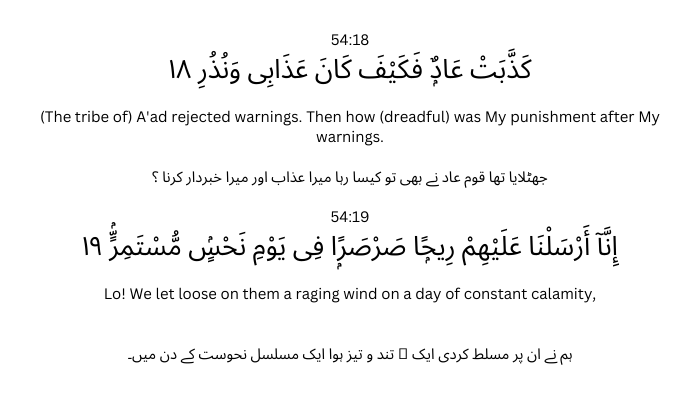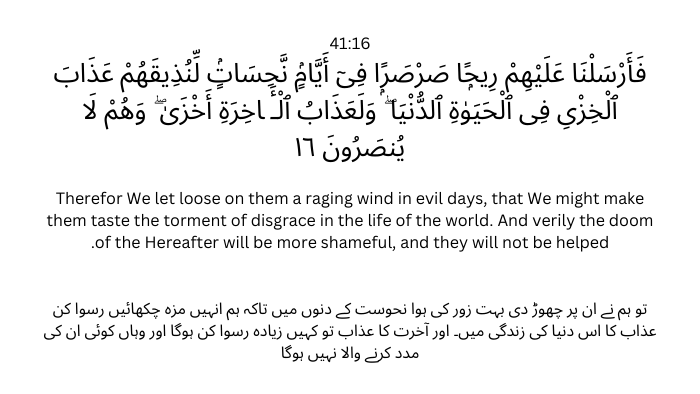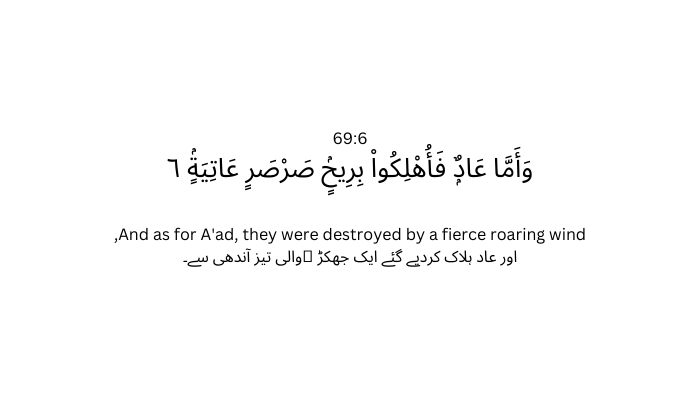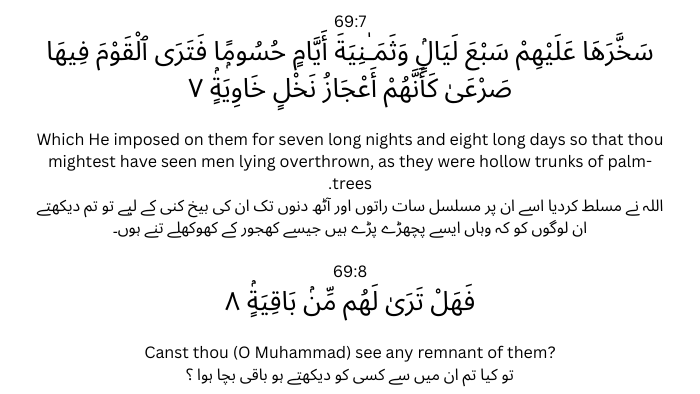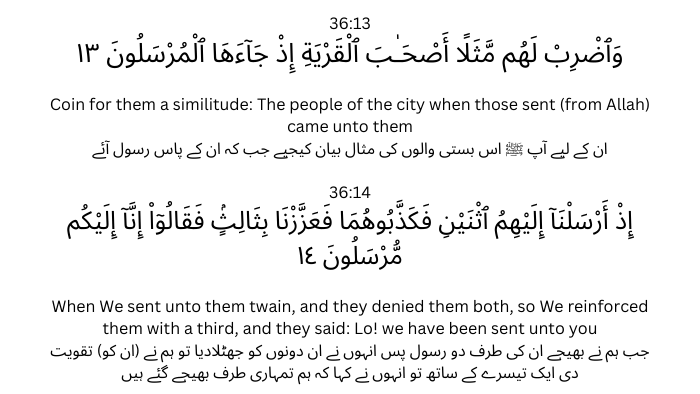Title : Nahoosat ke asal asbaab kya hain?
English Title: What are the causes of the decline?
Topic In Urdu : نحوست كے اصل اسباب كيا هيں؟
Date : 25th August 2023
Duration : 45:24
Podcast Link : https://spotifyanchor-web.app.link/e/J8Jz877NBCb
Download the Lecture Here:
Nahoosat ke asal asbaab kya hain – 25th August 2023
Nahoosat ke asal asbaab kya hain – 25th August 2023 YouTube Video
YouTube Video – What are the causes of the decline? – Dr. Maulana Sarfraz Ahmad Awan English Translation
Introduction
Alhamdulillah. Alhamdulillahi Rabbil Alameen. Salat was salamu ala sayyidil anbiya wa khatamil mursaleen, wa ala alihi wa sahbihi, wa man tabi’ahum bi ihsanin ila yawmid deen. Amma ba’du, fa’auzu billahi minash shaitanil lajeem. Bismillahir Rahmanir Raheem. Qala ta’ala: wa ma asabakum min musibatin fa mima kasabat aydikum, wa ya’fu an munkathir. Sadaqallahu al azeem. Muhabbat se dursri parlaziya sabzara wa ta’ala. Allahu salli wa sallim wa barika ala sayyidina Muhammadin wa alaihi wa sallim.
Understanding the Notion of Auspiciousness and Inauspiciousness
Respected elders and dear brothers, it is not the time to give a preface. Without any preface, I would like to say that when we, in the light of the blessed instruction of the Holy Prophet (saw) that there is no month in our religion, especially the month of travel, or any day or moment, is not inauspicious. Then, in the minds of some of our beloveds, this question arises that in the Holy Quran, the word ‘Nahis’ has been used, meaning ‘to be afflicted’. Similarly, the word ‘Saad’ has also been used.
1 – Saad in Quran
Decoding the Concepts of ‘Munshuguni’ and ‘Nahis’
And along with this, the mention of ‘Munshuguni’ has also been stated in the Holy Quran. So, how will we understand these verses? Today’s discussion demands utmost attention, and I am confident that you will give it due consideration.
The word ‘Nahis’ emphasizes ‘Saad’. ‘Saad’ signifies blessedness, while ‘Nahis’ implies the opposite—being not blessed. This term is cited in the Quran, in Surah Qamar, verse number 19, in relation to the people of ‘Aad’. The instruction of the Almighty is:
2 – Surah Qamar – Ayat 18-19
The people of ‘Aad’ rejected the words of the Prophet of the time how they were punished and how our warnings came to them. We sent a very stormy wind on them on the day of constant destruction where the word ‘Nahis’ came. That strong stormy wind was throwing people away as if they were the trunk of a date tree.
Here the word ‘Nahis’ has come. ‘Nahis’ is the plural form of ‘Nahis’. This word has also been mentioned in the Quran in reference to the people of ‘Aad’. In Surah Hameen Sajdah, verses 15 and 16, Allah Almighty speaks about the people of ‘Aad’:
3 – Ha Mim Ayat 15
4 – Ha Mim Ayat 16
Understanding the Consequences of Arrogance – Lessons from the People of ‘Aad’
In the account of the people of ‘Aad’, Allah Almighty reveals a profound lesson. These people displayed a sense of arrogance without any justifiable basis. Their false pride and arrogance led them astray. They began to boast and assert their superiority, claiming, “Who can be mightier than us?”
However, they failed to realize that the One who had created them, Allah, was infinitely more powerful. Despite this, they stubbornly denied the signs of Allah.
Their journey of pride and denial eventually took a fateful turn. As a consequence of their misdeeds and refusal to heed God’s teachings, Allah sent upon them a severe, stormy wind. This wind blew for several days, illustrating the usage of the term ‘nahis’ in describing these adverse days.
The purpose behind this divine punishment was twofold: to make them experience a taste of humiliation in the worldly life and, more importantly, to warn them about the far graver punishment awaiting them in the Hereafter.
This narrative underscores that ‘nahis’ signifies not only challenging days but also serves as a reminder of the inevitable consequences of arrogance and denial of the truth. The people of ‘Aad’ paid a heavy price for their arrogance, a lesson that holds relevance for all times.
Understanding the Concept of ‘Nahs’ and ‘Nahisat’ Through Quranic Narratives
Allah has mentioned the days of ‘nahisat’ in Surah Al-Haqqah (ayat 6, 7, 8).
5 – Surah Al Haqqah Ayat 6
6 – Surah Al Haqqah Ayat 7-8
In this context, the nation of ‘Aad’ is also referenced. They were destroyed by a relentless, powerful stormy wind that raged for seven nights and eight days, leaving them laid low, likened to a bunch of fallen dates.
In the Quranic verses, ‘Nahs’ is interpreted as ‘unfortunate’ or ‘difficult’. However, the concept of ‘Nahs’ and ‘Saad’ as inauspicious or unlucky days is not supported by the Quran. This understanding draws parallels with Hindu beliefs, as well as ancient Arab notions during the Age of Ignorance.
Contrary to such notions, Islam emphasizes that no month, day, hour, individual, dwelling, vehicle, animal, or bird is inherently inauspicious. This stance is rooted in Islamic teachings and is firmly upheld in both the Quran and Sunnah.
Unfortunately, misinterpretations of ‘Nahusat’ have persisted. For instance, the belief that a sitting ‘Ullu’ on a rooftop is a cause of ‘Nahusat’ is unfounded. Similarly, ideas about inauspiciousness surrounding a child’s protruding teeth are baseless.
Islam’s stance on this matter is consistent: no particular month, such as the month of travel, holds inauspiciousness. Notably, even Sayyidina Ali and Sayyidat Fatima Zahra’s marriage took place during the month of travel. Such incidents dispel the notion of inauspiciousness associated with this month.
The lesson here is that Islam rejects the imposition of inauspiciousness upon certain days, months, or events. Such beliefs often stem from cultural or superstitious influences rather than authentic religious teachings. The Quran and Sunnah guide us towards a balanced perspective that transcends notions of inauspiciousness.
Dispelling Superstitions and Misconceptions: A Quranic Perspective
In society, several baseless beliefs surround events and occurrences. For instance, some claim that the flesh of ‘Aqeeqah’ cannot be consumed by a grandparent’s teeth. However, ‘Aqeeqah’ is a gift from Allah, akin to the flesh of sacrifice.
فَكُلُوا مِنْهَا وَاتِحْمُ الْقَانِ عَوَى الْمُعْتَرِ
Its purpose is to be shared among the rich and the poor, as Allah Himself instructs.
Similarly, the idea that taking a dead body home is cursed, or that collisions between empty utensils predict fights at home, stems from misconceptions. Cultural superstitions, like considering a woman cursed if her husband dies prematurely, hold no religious basis.
Beliefs about animals like cats or dogs crying signifying bad omens, or an eclipse affecting pregnancy, lack Islamic grounding. These notions find their roots in non-religious traditions. Even marriage-related superstitions, like stars’ alignment, have no foundation in Islam.
Islam emphasizes individual accountability. Bad omens aren’t due to a specific day, but one’s actions. National outcomes change when collective actions do. Allah’s guidance and not baseless beliefs should steer our lives.
In Surah Bani Israel, verse 16, Allah elucidates how nations’ actions invite divine consequences. When elites, meant to uphold order, embrace corruption, chaos follows. This mirrors today’s political and moral turmoil. Quranic teachings apply across time, reminding us that our actions shape our destiny.
Learning from the Examples of Settlements in the Quran
In Surah Nahl, verse 112, Allah presents an illustrative example of a settlement, much like that of Makkah but akin to contemporary Pakistan. This settlement enjoyed peace and prosperity; however, they neglected Allah’s blessings, triggering His retribution.
7 – Al Nahl – Ayat 112
History records a similar narrative. When wheat prices were low, people remained ungrateful. The Quranic example mirrors the people of Pharaoh and Moses, who once flourished. Despite great blessings, they embraced injustice, mistreating the weak.
As their arrogance grew, Allah’s response came in the form of decreased harvests and testing times. Yet, they failed to learn, as they only recognized the significance of hardship. The Quran emphasizes that prosperity or adversity isn’t about specific figures like Moses, rather individual and collective actions.
The example continues with the rainfall, a trial symbolizing their transgressions. Eight days of incessant rain led to chaos, illustrating Allah’s response to their arrogance. They eventually turned to Moses, not out of faith but desperation.
In their plea, they acknowledge Moses’ prophethood and make conditional promises. Upon Moses’ prayer, Allah alleviates their hardship. The lesson is clear: adversity is linked to one’s actions and attitudes.
This story resonates today. We must remember, when undertaking spiritual journeys like Umrah, to continually pray for one another. Through united prayers, angels echo our supplications with “Amen.” Our faith, actions, and unity determine our fate, echoing the timeless lessons of the Quranic examples.
Understanding Divine Response to Human Actions
Allah’s words in the Quran illustrate that if the people had adhered to the message of Moses and followed their promises, their troubles could have been averted. The verses highlight various misfortunes that befell them.
The people were granted the river’s water, then crops from the land, yet they persisted in arrogance. When drought struck, and they turned to Moses for aid, their misfortunes were eased. However, their behavior reverted, demonstrating how human actions often lead to unfavorable outcomes.
This notion is echoed in Surah Yasin (verses 13-19), clarifying that hardships are the result of one’s actions.
8 – Surah Yasin – Ayat 13-14
9 – Surah Yasin – Ayat 15-16
10 – Surah Yasin – Ayat 17-18
11 – Surah Yasin – Ayat 19
In the face of difficulties, the polytheists blamed the Prophet, ascribing the hardships to his presence. Allah dispels this by explaining the cycle of human actions and consequences.
Prophet Muhammad also advised against visiting plague-stricken areas or departing from such zones. This advice underscores that taking precautions and avoiding harm’s path aligns with the Quranic teachings of understanding the relationship between actions and outcomes. This wisdom continues to guide us today, as understanding our actions’ repercussions remains a crucial aspect of a well-rounded faith.
Urdu Translation
00:00 –> 00:02 الحمد للہ 00:02 –> 00:08 الحمد للہ رب العالمين 00:08 –> 00:17 السلام علی سید الانبیاء وخاتم المنسلین 00:17 –> 00:27 وعلى آله وصحبه ومن تبعهم باحسان الى يوم الدین 00:29 –> 00:33 اما بعد فاعوذ باللہ من الشیطان الرجیم 00:33 –> 00:36 بسم اللہ الرحمن الرحیم 00:36 –> 00:39 قال تعالیٰ 00:39 –> 00:48 وما اصابكم من مصیبت فمما قسبت ایدیکم ويعفو عن مكثیر 00:48 –> 00:51 صدق اللہ العظیم 00:51 –> 00:56 محبت سے درود شریف پڑھ لیں سب حضرات 01:11 –> 01:16 محترم بزرگو اور عزیز بھائیو 01:16 –> 01:23 تمہیدی کلمات کا وقت نہیں ہوتا 01:25 –> 01:27 بلا کسی تمہید کے 01:27 –> 01:31 یہ بات 01:31 –> 01:34 عرض کروں 01:34 –> 01:36 کہ جب ہم 01:36 –> 01:41 نبی اکرم صلو اللہ تعالیہ وسلم کے 01:41 –> 01:47 مبارک ارشاد کی روشنی میں یہ بات کہتے ہیں 01:47 –> 01:51 کہ ہمارے دین میں کوئی مہینہ 01:51 –> 01:54 خصوصاً سفر کا مہینہ 01:56 –> 01:58 یا کوئی دن یا گھڑی 01:58 –> 02:01 منحوس نہیں ہے 02:01 –> 02:04 تو 02:04 –> 02:07 بعض احباب کے ذہنوں میں 02:07 –> 02:10 یہ سوال اٹھتا ہے 02:10 –> 02:15 کہ قرآن کریم میں 02:15 –> 02:18 نحس کا لفظ آیا ہے 02:18 –> 02:22 یعنی منحوس ہونے کا 02:24 –> 02:25 اسی طرح 02:25 –> 02:28 سعد کا لفظ بھی آیا ہے 02:28 –> 02:31 فَأَمَّا الَّذِينَ السُّعِدُوا فَفِى الْجَنَّةِ 02:31 –> 02:38 یَفَبِنهُمْ شَقِيُّمْ وَسَعِيدُ 02:39 –> 02:39 اور اس کے ساتھ ساتھ 02:41 –> 02:44 منشغونی کا تذکرہ بھی 02:44 –> 02:47 قرآن کریم میں آیا ہے 02:47 –> 02:51 تو ان آیات کو ہم کیسے سمجھیں گے 02:52 –> 02:54 آج کی گفتگو اس حوالے سے 02:54 –> 02:57 بہت توجہ طلب ہے 02:57 –> 03:00 مجھے یقین ہے آپ اس کی طرف دھیان دیں گے 03:02 –> 03:07 نحس کا لفظ سعد کی زد ہے 03:09 –> 03:17 سعد کے معنی مبارک اور نحس کے معنی نامبارک 03:20 –> 03:22 یہ لفظ قرآن کریم میں 03:22 –> 03:25 سورہ قمر کی آیت نمبر انیس میں 03:25 –> 03:28 قوم عاد کے تذکرے میں آیا ہے 03:30 –> 03:32 ارشاد باری تعالیٰ ہے 03:32 –> 03:34 كَذَّبَتْ عَادٌۭ 03:34 –> 03:40 قوم عاد نے وقت کے نبی کی بات کو جھٹلایا 03:42 –> 03:45 فَكَيْفَ كَانَ عَذَابِي وَنُذُرِ 03:46 –> 03:48 تو ذرا دیکھو تو صحیح 03:49 –> 03:55 کہ ان پر ہماری سزا کا کوڑا کیسے برسا 03:55 –> 04:00 اور ہماری تنبیہات ان کی طرف کیسے آئیں 04:02 –> 04:06 إِنَّا أَرْسَلْنَا عَلَيْهِمْ رِيحًا صَرْصَرًا 04:07 –> 04:13 ہم نے ان پر ایک بہت طوفانی ہوا چلائی 04:14 –> 04:18 فِي يَوْمِ نَحْسٍ مُسْتَمِرٍّ 04:19 –> 04:22 مسلسل نحوسد کے دن 04:22 –> 04:25 یہاں نحس کا لفظ آیا 04:25 –> 04:27 تَنْزِعُ النَّاسَ 04:28 –> 04:30 وہ تیز طوفانی ہوا 04:31 –> 04:33 لوگوں کو ایسے اٹھا اٹھا کر 04:33 –> 04:35 پھینک رہی تھی 04:35 –> 04:39 كَأَنَّهُمْ أَعْجَازُ نَخْلٍ مُنْقَعِرٍ 04:39 –> 04:43 گویا کہ وہ جڑ سے اکڑے ہوئے 04:43 –> 04:44 خجور کے تنے 04:47 –> 04:49 یہاں لفظ نحس آیا ہے 04:50 –> 04:54 نحس کی جمع نحسات ہے 04:54 –> 04:57 یہ لفظ بھی قرآن کریم میں 04:57 –> 05:00 قوم عاد ہی کے تذکرے میں آیا ہے 05:00 –> 05:05 سور حامین سجدہ کی آیت نمر پندرہ اور سولہ میں 05:02 –> 05:07 قوم عاد کا ذکر کرتے ہوئے 05:07 –> 05:09 اللہ تعالی نے فرمایا 05:09 –> 05:12 فَأَمَّا عَادٌ 05:12 –> 05:16 جہاں تک قوم عاد کی بات ہے 05:16 –> 05:20 فَاسْتَكْبَرُوا فِي الْأَرْضِ بِغَيْرِ الْحَقِّ 05:21 –> 05:27 وہ ناحق غرور اور تکبر میں مبتلا ہو گئے 05:27 –> 05:30 ناحق بڑے بن بیٹھے 05:30 –> 05:33 غرور کرنے لگے تکبر کرنے لگے 05:33 –> 05:35 اور کہنے لگے 05:35 –> 05:38 مَنْ أَشَدُّ مِنَّا قُوَّةً 05:38 –> 05:42 ہم سے زیادہ طاقتور کون ہو سکتا ہے 05:42 –> 05:46 أَوَلَمْ يَرَوْا أَنَّ اللَّهَ الَّذِي خَلَقَهُمْ 05:46 –> 05:48 هُوَ أَشَدُّ مِنْهُمْ قُوَّةً 05:48 –> 05:51 کیا انہوں نے اس بات کا مشاہدہ نہیں کیا 05:51 –> 05:53 اسے نہیں دیکھا 05:53 –> 05:56 کہ وہ اللہ جس نے انہیں پیدا کیا ہے 05:56 –> 06:00 وہ ان سے بہت زیادہ طاقت والا ہے 06:00 –> 06:02 قوت والا ہے 06:02 –> 06:06 وَكَانُوا بِآيَاتِنَا يَجْحَدُونَ 06:06 –> 06:09 اور وہ ہماری آیات کا 06:09 –> 06:12 انکار کرتے رہے 06:12 –> 06:14 انکار کرتے رہے 06:14 –> 06:17 بالآخر کیا ہوا 06:17 –> 06:21 ان کی بدعمالیوں کی وجہ سے 06:21 –> 06:24 یعنی تکبر 06:24 –> 06:29 اور انکار تعلیماتِ ربانی کی وجہ سے 06:29 –> 06:32 فَأَرْسَلْنَا عَلَيْهِمْ رِيحًا صَرْصَرًا 06:32 –> 06:36 ہم نے ایک سخت طوفانی ہوا 06:36 –> 06:40 فِي أَيَّامٍ نَحِسَاتٍ 06:41 –> 06:44 یہاں نحس کی جمع نحسات ذکر ہوئی 06:44 –> 06:49 چند منحوس دنوں میں ان پر چلا دیں 06:49 –> 06:51 تیز ہوا چلا دیں 06:51 –> 06:55 لِنُذِيقَهُمْ عَذَابَ الْخِزْيِ فِي الْحَيَاةِ الدُّنْيَا 06:55 –> 06:58 تاکہ دنیا میں بھی 06:58 –> 07:02 اللہ کی قڑی سزا کی جھلک وہ چکھیں 07:02 –> 07:04 تاکہ ہم انہیں چکھائیں 07:04 –> 07:07 وَلَعَذَابُ الْآخِرَةِ أَخْزَىٰ 07:08 –> 07:13 اور آخرت کا عذاب اور آخرت کی سزا تو بہت سخت ہے 07:13 –> 07:18 یہاں آپ نے دیکھا کہ نحسات کا لفظ 07:18 –> 07:20 یعنی نحس کی جمع 07:20 –> 07:22 اللہ تعالیٰ نے ذکر فرمائی 07:22 –> 07:27 یہ ایام النحسات یعنی چند منحوس دن 07:27 –> 07:29 کون سے تھے 07:29 –> 07:33 اس کی وضاحت اللہ تعالیٰ نے سورة الحاقہ میں فرمائی 07:33 –> 07:37 سورة الحاقہ کی آیت نمبر چھ سات اور آٹھ 07:38 –> 07:42 وہاں بھی قوم عاد کا تذکرہ ہے 07:42 –> 07:47 وَأَمَّا عَادٌ جہاں تک قوم عاد کا مسئلہ ہے 07:47 –> 07:52 فَأُهْلِكُوا بِرِيحٍ صَرْصَرٍ عَاتِيَةٍ 07:52 –> 07:57 انہیں ہلاک کیا گیا بہت شدید 07:57 –> 08:00 توفانی آندھی کے ذریعے 08:00 –> 08:05 سَخَّرَهَا عَلَيْهِمْ سَبْعَ لَيَالٍ وَثَمَانِيَةَ أَيَّامٍ 08:06 –> 08:10 اور اللہ تعالیٰ نے أَيَّامٍ حُسُومًا 08:10 –> 08:19 اللہ تعالیٰ نے اس تیز توفانی ہوا کو ان پر سات راتیں 08:19 –> 08:23 اور آٹھ دن مسلسل مسلط رکھا 08:27 –> 08:30 فَتَرَى الْقَوْمَ فِيهَا صَرْعَىٰ 08:30 –> 08:33 اور اس کا نتیجہ یہ ہوا 08:34 –> 08:38 کہ وہ ایسے گرے پڑے دکھائی دیتے تھے 08:38 –> 08:41 كَأَنَّهُمْ أَعْجَازُ نَخْلٍ خَاوِيَةٍ 08:41 –> 08:46 جیسا کہ بوسیدہ خجور کا کوئی تنہ ہوتا ہے 08:46 –> 08:49 فَهَلْ تَرَىٰ لَهُمْ مِنْ بَاقِيَةٍ 08:50 –> 08:52 اے قرآن کے مخاطب 08:52 –> 08:55 کیا تمہیں ان میں سے کوئی باقی بچہ نظر آتا ہے 08:58 –> 09:03 آپ نے دیکھا کہ یہاں قرآن کریم کی آیات میں 09:03 –> 09:09 نحس واحد اور اس کی جمع نحسات دونوں ذکر آئے ہیں 09:09 –> 09:12 گویا نحس کے معنی نامبارک ہونے 09:12 –> 09:16 یا لغوی لحاظ سے اس کے معنی مشقت کے 09:16 –> 09:20 تقلیف کے اور نقصان کا باعث ہونے کے آتے ہیں 09:20 –> 09:25 اب یہ بات میں چاہتا ہوں 09:25 –> 09:27 اس کی طرف آپ کی توجہ ہو 09:27 –> 09:33 کہ سعد اور نحس کا جو مفہوم عام طور پر لیا جاتا ہے 09:33 –> 09:35 ہمارے معاشرے میں 09:35 –> 09:40 قرآن کریم کی آیات سے اس کی تائید نہیں ہوتی 09:42 –> 09:47 قرآن کریم میں جو نحس اور سعد ہے 09:47 –> 09:52 وہ اس مفہوم میں نہیں ہے جس مفہوم میں عام طور پر ہم لیتے ہیں 09:53 –> 09:59 ہمارے ہاں کسی دن کو منحوث سمجھنے کا جو خیال ہے 09:59 –> 10:03 وہ دراصل ہندوانہ تصور ہے 10:03 –> 10:08 جو منگل کے دن کو منحوث سمجھتے ہیں 10:08 –> 10:13 اسی طرح کسی مہینے کو منحوث سمجھنا 10:13 –> 10:20 دور جاہلیت کے عرب معاشرے کا تصور ہے 10:21 –> 10:25 وہ سفر کے مہینے کو منحوث سمجھتے تھے 10:25 –> 10:30 اسلام میں کوئی مہینہ 10:30 –> 10:32 کوئی دن 10:32 –> 10:34 کوئی گھڑی 10:34 –> 10:36 کوئی مرد یا عورت 10:36 –> 10:39 کوئی مکان 10:39 –> 10:41 کوئی سواری 10:41 –> 10:43 کوئی جانور 10:43 –> 10:45 کوئی پرندہ 10:45 –> 10:49 قطعن منحوث نہیں ہے 10:50 –> 10:53 اس کو عقیدے کے طور پر خدارہ قبول کیجئے 10:53 –> 10:55 یہ ہمارا عقیدہ ہے 10:55 –> 10:58 اور قرآن و سنت کی تائید 10:58 –> 11:02 اور قرآن و سنت کی روشنی میں اختیار کردت عقیدہ ہے 11:02 –> 11:06 بدکسمتی سے ہمارے ہاں 11:08 –> 11:10 یہ بڑے دکھ کی بات ہے 11:10 –> 11:14 کہ منحوثت کے عجیب عجیب خیالات پائے جاتے ہیں 11:14 –> 11:16 ہمارے معاشرے میں پائے جاتے ہیں 11:16 –> 11:18 مثلا 11:18 –> 11:21 گھر کی چھت پر اگر علو بیٹھا 11:21 –> 11:23 تو اس کا بیٹھنا 11:23 –> 11:26 ہم سمجھتے ہیں کہ یہ منحوثت کا باعث ہے 11:26 –> 11:28 یہ عجیب علو ہے 11:28 –> 11:30 کہیں منحوث سمجھا جاتا ہے 11:30 –> 11:32 اور کہیں مبارک سمجھا جاتا ہے 11:32 –> 11:36 اسی طرح سفر کی شادی کو 11:36 –> 11:38 سفر کے مہینے میں شادی کو 11:38 –> 11:40 ہم منحوث سمجھتے ہیں 11:40 –> 11:43 جبکہ سیدنا علی کررم اللہ وجہہو 11:43 –> 11:47 اور سیدہ فاطمہ زہرا رضی اللہ تعالیٰ عنہ کی 11:47 –> 11:50 شادی سفر کے مہینے میں ہوئی 11:50 –> 11:54 گزشتہ خطبے میں میں اس کی تفصیل ذکر کر چکا ہوں 11:54 –> 11:57 اسی طرح ہمارے معاشرے میں 11:57 –> 12:00 اگر بچے کے دانت 12:00 –> 12:02 الٹے نکلیں 12:02 –> 12:06 تو لوگ کہتے ہیں کہ یہ ننحال پر بڑے بھاری ہے 12:06 –> 12:09 حنہ کہ اس کا ننحال سے کیا تعلق ہے 12:09 –> 12:12 اسی طرح 12:12 –> 12:15 لوگ کہتے ہیں کہ عقیقے کا گوشت 12:15 –> 12:19 داد کے نان کے نہیں کھا سکتے 12:19 –> 12:23 دادے دادیاں نانے نانیاں نہیں کھا سکتے 12:23 –> 12:27 وہی عقیقے کا گوشت قربانی کے گوشت کی طرح ہے 12:27 –> 12:35 عقیقہ یہ صدقہ نہیں ہے یہ دم شکر ہے یہ کیا ہے جی 12:35 –> 12:38 یہ دم شکر ہے اللہ نے نعمت عطا فرمائی 12:38 –> 12:41 رحمت عطا فرمائی بیٹے بیٹی کی صورت میں 12:41 –> 12:44 شکرانے کے طور پر یہ گوشت دیا جا رہا ہے 12:44 –> 12:47 یہ قربانی کے گوشت کی طرح ہے 12:47 –> 12:51 فَكُلُوا مِنْهَا وَاتِحْمُ الْقَانِ عَوَى الْمُعْتَرِ 12:51 –> 12:52 خود بھی کھاؤ 12:52 –> 12:54 جو ما شاء اللہ 12:54 –> 12:57 صاحبِ سربت ہیں ان کو بھی کھلاو 12:57 –> 13:00 اور جو مارے ہیں کمزور ہیں ان کو بھی کھلاو 13:00 –> 13:02 اس آیت کی روشنی میں عام طور پر 13:02 –> 13:05 گوشت کے تین حصے کیا جاتے ہیں 13:05 –> 13:08 ورنہ اگر کوئی عقیقے کا گوشت 13:08 –> 13:11 سارا اپنے گھر میں بھی رکھ لے 13:11 –> 13:14 تو بھی جائز ہے شرعن جائز ہے 13:14 –> 13:17 جواز کی بات میں بتا رہا ہوں 13:17 –> 13:20 لیکن بہرحال اسے خیرات کرنا چاہیے 13:20 –> 13:22 تقسیم کرنا چاہیے 13:22 –> 13:25 اسی طرح ہمارے معاشرے میں 13:25 –> 13:28 یہ بات ہے کہ 13:28 –> 13:31 گھر میں سے کسی چار پائی پر 13:31 –> 13:34 مید رکھ کر 13:34 –> 13:37 قبرستان نہیں لے جائیں 13:37 –> 13:40 گھر میں وہ چار پائی منحوس ثابت ہوتی ہے 13:40 –> 13:42 کیونکہ اگر 13:42 –> 13:45 وہی چار پائی دوبارہ گھر میں آ گئی 13:45 –> 13:48 تو گھر سے کسی کو لے کے جائے 13:48 –> 13:51 لہٰذا مسجد میں وہ چار پائی 13:51 –> 13:54 مستقل رکھتے ہیں کہ اگر لے کے بھی گئی 13:54 –> 13:57 تو مولی صاحب کو لے جائیں گے 13:57 –> 14:06 اسی طرح ہمارے معاشرے میں یہ تواہم 14:06 –> 14:09 یہ وہم پایا جاتا ہے 14:09 –> 14:12 کہ خالی برتن یا چمچ اگر آپس میں ٹکرائیں 14:12 –> 14:15 تو گھر میں لڑائی جگڑا ہوگا 14:15 –> 14:20 جوانی میں اگر کوئی خاتون بیوہ ہو جائے 14:20 –> 14:23 یا آتے ہی 14:23 –> 14:27 اس کے گھر آتے ہی گھر میں سے کوئی بندہ فوت ہو جائے 14:27 –> 14:29 تو سارے اس عورت کو 14:29 –> 14:32 اس دلن کو منحوس سمجھتے ہیں 14:32 –> 14:34 نعوذ باللہ 14:34 –> 14:37 اسی طرح کہتے ہیں خالی کینچی چلائیں گے 14:37 –> 14:40 تو گھر میں لڑائی ہوگا 14:40 –> 14:45 حاملہ خاتون میت کے قریب اگر چلی جائے 14:45 –> 14:47 تو اس کے بطن میں جو 14:47 –> 14:49 امانت ہے بیٹا ہے بیٹی ہے 14:49 –> 14:51 اس پر برا اثر پڑے گا 14:51 –> 14:54 یہ ہمارے ہاں سوچ پائی جاتی ہے 14:54 –> 15:01 دکان دار کے ہاں پہلا گاک اگر خالی چلا جائے 15:01 –> 15:05 یا پہلا گاک ادھار مانگنے کے لئے آ جائے 15:05 –> 15:08 تو وہ یہ نظریہ قائم کلیتا ہے 15:08 –> 15:11 کہ آج کا دن جو ہے وہ منحوس ہی گزرے گا 15:11 –> 15:13 کیونکہ گاک واپس چلا گیا 15:13 –> 15:16 یا ادھار مانگنے کے لئے آ گیا 15:16 –> 15:19 اسی طرح بلی اور کتہ 15:19 –> 15:22 اگر رات کو رونے لگ جائے 15:22 –> 15:24 رونے کی آواز نکالتے ہیں 15:24 –> 15:26 بلی بھی نکالتی ہے کتہ بھی نکالتا ہے 15:26 –> 15:28 تو سارا گھر سمجھتا ہے 15:28 –> 15:30 یہ جہاں تک آواز جا رہی ہوتی ہے 15:30 –> 15:33 کہ یہ کوئی بڑی منحوس رات ہے 15:33 –> 15:36 کیونکہ کتے اور بلیاں رو رہے ہیں 15:36 –> 15:39 گویا بلائیں جو ہیں وہ اتر رہی ہیں 15:39 –> 15:43 مرغا اگر دن میں اذان دینے لگے 15:43 –> 15:45 تو کہتے ہیں یہ منحوس ہے 15:45 –> 15:47 اسے زبا کرو 15:47 –> 15:49 یہ گھر میں رکھنے کے لائق نہیں 15:49 –> 15:53 اسی طرح عید اگر جمعے کے دن آ جائے 15:53 –> 15:55 تو لوگ کہتے ہیں کہ 15:55 –> 15:57 ہکمرانوں پر یہ عید بڑی بھاری ہے 15:58 –> 16:02 ہکمرانوں پر ان کا ظلم بھاری ہوتا ہے 16:02 –> 16:05 ان کی کرپشن بھاری ہوتی ہے 16:05 –> 16:07 ان کی قوم کے ساتھ 16:07 –> 16:10 بددیانتی اور خیانت بھاری ہوتی ہے 16:10 –> 16:13 جمعہ تو عید کا دن ہے مبارک ہے 16:13 –> 16:15 اور اس میں دو خطبے ہوں گے 16:15 –> 16:17 تو مزید دو مبارک ورکتیں حاصل ہوتی ہیں 16:17 –> 16:20 ہمارے معاشرے میں 16:20 –> 16:24 رات کو کنگی کرنا یا ناخن کاٹنا 16:24 –> 16:27 اس کو منحوس سمجھا جاتا ہے 16:27 –> 16:29 بلکل بے حیثیت پاک ہے 16:29 –> 16:32 اسی طرح دائیں آنکھ اگر پھڑکنے لگے 16:32 –> 16:37 تو کہتے ہیں مسیبت آ رہی ہے کوئی غلط بات ہے 16:37 –> 16:39 جوتہ اتار دے وقت 16:39 –> 16:41 اگر جوتے پر چڑ جائے 16:41 –> 16:42 تو لوگ کہتے ہیں کہ 16:42 –> 16:44 اب کوئی نہ کوئی سفر ہوگا 16:44 –> 16:46 اور یہ منحوس ہے بات 16:46 –> 16:49 مہمان کے رخصت ہونے کے فوراً بعد 16:49 –> 16:51 اگر گھر میں جھاڑو دیا جائے 16:51 –> 16:53 تو کہتے ہیں ہو ہو نہیں نہیں 16:53 –> 16:55 یہ نخوست لائے گا 16:55 –> 16:58 اسی طرح سورج گرہن لگے 16:58 –> 17:01 تو حاملہ خواتین گھر سے نہ نکلیں 17:01 –> 17:04 ورنہ جو ہے وہ بچہ متأثر ہوگا 17:04 –> 17:07 یہ سوچ یہ وہم پایا جاتا ہے 17:07 –> 17:09 اور بعض علاقوں میں تو 17:09 –> 17:12 اس پر بڑی سختی سے حمل ہوتا ہے 17:12 –> 17:14 اسی طرح کہتے ہیں 17:14 –> 17:17 کہ جب سورج گرہن ہو یا چاند گرہن ہو 17:17 –> 17:22 تو حاملہ گاہ بھینس بکری کی زنجیر کھول دیں 17:22 –> 17:24 ورنہ ان کا نقصان ہو جائے گا 17:24 –> 17:30 شادی سے پہلے دلہ دلن کے ستاروں کو ملانے 17:30 –> 17:34 یا ملتے ہیں یا نہیں ملتے 17:34 –> 17:39 یہ سوچ یہ وہم ہے اور یہ خیال پایا جاتا ہے 17:39 –> 17:42 یہ تمام باتیں جو میں نے شمار کی ہیں 17:42 –> 17:48 یہ بے بنیاد توہومات ہیں 17:48 –> 17:51 اور ہندو کلچر کا حصہ ہیں 17:51 –> 17:58 ہمارے دین میں ان کی کوئی حیثیت نہیں 17:58 –> 18:00 اب ذرہ بات سمجھئے 18:00 –> 18:04 قرآن آیات کی روشنی میں یہ واضح ہو رہا ہے 18:04 –> 18:09 کہ سعادت اور نہوست انسان کے 18:09 –> 18:16 اپنے اعمال ہی کے نتائج کا نام 18:16 –> 18:21 نہوست اگر کہیں آتی ہے 18:21 –> 18:24 تو اس دن میں نہیں 18:24 –> 18:27 انسان کے اپنے اعمال کی وجہ سے 18:27 –> 18:30 اس فرد کے لیے یا اس طبقے کے لیے ہے 18:30 –> 18:33 جس میں وہ عیب موجود 18:33 –> 18:38 قوموں کے لیے کشحالی 18:38 –> 18:41 جب بدحالی میں بدلتی ہے 18:41 –> 18:45 اور مبارکی اور سعادت کی جگہ 18:45 –> 18:49 نام مبارکی اور نہوست 18:49 –> 18:52 تب لیتی ہے 18:52 –> 18:57 جب قوم اپنے ایسے کرتوت کرتی ہے 18:57 –> 18:59 جن کرتوتوں کا 18:59 –> 19:07 اسلام جن کرتوتوں کی اجازت نہیں دے 19:07 –> 19:11 سور بنی اسرائیل کی آیت نمبر سولہ میں ہے 19:11 –> 19:15 سور بنی اسرائیل آیت نمبر سولہ 19:15 –> 19:17 ارشاد بانی تعالیٰ ہے 19:17 –> 19:20 وَإِذَا أَرَدْنَا أَنْ نُهْلِكَ قَرْيَةً 19:22 –> 19:26 جب ہم لوگوں کی ہٹ درمیوں کی وجہ سے 19:26 –> 19:33 کسی بستی کی تباہی کا فیصلہ کرتے ہیں 19:33 –> 19:37 تو اس تباہی کی وجہ کیا ہوتی ہے 19:37 –> 19:40 ذرا اپنے ملکی حالات کو بھی 19:40 –> 19:42 اس تناظر میں آپ سمجھیں گے 19:42 –> 19:45 اس آیت میں جو کہ قرآن تو ایسی کتاب ہے 19:45 –> 19:46 جب بھی آپ کھولیں گے 19:46 –> 19:50 تو ایسے لگے گا جسے آج ہی کے لیے اتری 19:50 –> 19:52 اللہ فرماتے ہیں 19:52 –> 19:55 أَمَرْنَا مُتْرَفِيهَا 19:55 –> 20:02 ہم وہاں کے رئیس طبقے اور خوشحال طبقے کو 20:02 –> 20:10 وہاں کے جاگیلدار، سرمایہ دار، ممبرانِ پارلیمنٹ 20:10 –> 20:15 بیوروکریسی اہددار، غزرار، سفراع 20:15 –> 20:19 وہاں کا وہ طبقہ، الیٹ طبقہ 20:19 –> 20:21 صاحبِ سربت لوگ 20:21 –> 20:23 أَمَرْنَا مُتْرَفِيهَا 20:23 –> 20:29 ان کو ہم احکام کی پابندی کا حکم دیتے ہیں 20:29 –> 20:31 لیکن ہوتا کیا ہے 20:31 –> 20:34 احکام کی پابندی کا حکم اس لیے دے رہے ہیں 20:34 –> 20:38 کہ ما تحت ان کو فالو کریں گے 20:38 –> 20:41 مَاَنْنَاسُ عَلَىٰ دِينِ مُلُوكِهِمْ 20:41 –> 20:44 لوگ تو اپنے بادشاہوں کے دین پر ہوتے ہیں 20:44 –> 20:48 جو ان کا ربیعہ ہے وہی ان کا ربیعہ ہوگا 20:48 –> 20:50 تو اللہ قرآنِ کریم میں فرماتے ہیں 20:50 –> 20:53 فَفَسَقُوا فِيهَا 20:53 –> 20:59 لیکن اس بستی میں وہ الٹرہ کھلی نافرمانیاں شروع کر دے 20:59 –> 21:04 یہ طبقہ بستی میں یا ملک میں 21:04 –> 21:07 کھلی نافرمانیاں شروع کر دیتا ہے 21:07 –> 21:13 کرپشن کے ریکارڈ توڑ دیتا ہے 21:13 –> 21:15 فَحَاشِ اور عُرِيَانِ میں 21:15 –> 21:19 اپنا نام نمائیاں پیدا کر لیتے ہیں 21:19 –> 21:22 فَحَقَّ عَلَيْهَا الْقَوْلُ 21:22 –> 21:27 تو اللہ کے عذاب کا فرمان ان پر یقینی ہو جاتا ہے 21:27 –> 21:29 فَدَمَّرْنَاهَا تَدْمِيرًا 21:29 –> 21:36 پھر ہم اس بستی کو جڑ سے اکھار کر رہے ہیں 21:36 –> 21:39 اب آپ دیکھ رہے ہیں 21:39 –> 21:44 کہ اس بستی میں جو خرابی آئی ہے اور نقص آیا ہے 21:44 –> 21:48 وہ لوگوں کے عامال کی وجہ سے آیا ہے 21:48 –> 21:50 سورة النحل کی آیت نمبر 112 میں 21:50 –> 21:53 اللہ تعالیٰ نے ایک بستی کی مثال دی ہے 21:53 –> 21:57 اور ہے تو مکہ کی بستی کی مثال 21:57 –> 22:00 لیکن لگتا ایسا ہے جیسے پاکستان کی مثال 22:00 –> 22:02 اللہ نے قرآن کریم میں بیان کر دی 22:02 –> 22:05 وَضَرَبَ ٱللَّهُ مَثَلاً۬ قَرۡيَةً۬ 22:05 –> 22:08 اللہ تعالیٰ ایک بستی کی مثال بیان کرتے ہیں 22:08 –> 22:11 ڪَانَتۡ ءَامِنَةً۬ مُّطۡمَٮِٕنَّةً۬ 22:11 –> 22:13 وہاں کے لوگ 22:13 –> 22:16 وہاں کے بستی بڑی پر امن تھی 22:16 –> 22:18 مطمئنناتاً وہاں کے لوگ 22:18 –> 22:21 بڑے اتمینان کی زندگی گزار رہے تھے 22:21 –> 22:24 يَأۡتِيهَا رِزۡقُهَا رَغَدً۬ا مِّن كُلِّ مَكَانٍ۬ 22:24 –> 22:29 ہر جانب سے وافر رزق ان کو میسر آ رہا ہے 22:29 –> 22:32 اپنے بزرگوں سے پوچھئے 22:32 –> 22:35 کہ انہوں نے گننم کس بھاؤ لی ہے 22:35 –> 22:39 جب چودہ روپے من سے بیس روپے من آٹا ہوا 22:39 –> 22:43 تو حبیب جالب صاحب نے نظم لکھ دی 22:43 –> 22:48 چودہ روپے من سے بیس روپے من 22:48 –> 22:51 ڪَانَتۡ ءَامِنَةً۬ مُّطۡمَٮِٕنَّةً۬ 22:51 –> 22:54 يَأۡتِيهَا رِزۡقُهَا رَغَدً۬ا مِّن كُلِّ مَكَانٍ۬ 22:54 –> 22:59 ہر جانب سے وافر رزق ان کو میسر آ رہا ہے 22:59 –> 23:02 اب جرہ اگلے جملے پر غور کیجئے 23:02 –> 23:05 فَڪَفَرَتۡ بِأَنۡعُمِ ٱللَّ 23:05 –> 23:08 اس بستی اور اس بلک کے لوگوں نے 23:08 –> 23:13 اللہ کی نعمتوں کی ناقدری شروع کر دی 23:13 –> 23:17 فَأَذَٲقَهَا ٱللَّهُ لِبَاسَ ٱلۡجُوعِ وَٱلۡخَوۡفِ 23:17 –> 23:20 اللہ تعالی نے ان لوگوں پر 23:20 –> 23:24 اس بستی کے لوگوں پر دو چیزیں مسلط کی 23:24 –> 23:28 ان کے اس ناشکری کی وجہ سے 23:28 –> 23:32 لباس الخوف والجوع 23:32 –> 23:34 بِمَا ڪَانُواْ يَصۡنَعُونَ 23:34 –> 23:37 ان کے کرتوتوں کی وجہ سے ہم نے ان پر 23:37 –> 23:41 فَأَذَٲقَهَا ٱللَّهُ لِبَاسَ ٱلۡجُوعِ وَٱلۡخَوۡفِ 23:41 –> 23:42 اللہ فرماتے ہیں 23:42 –> 23:47 اللہ نے ان پر خوف اور بھوک ایسے مسلط کر دی 23:47 –> 23:50 جسے انسانی جسم پر لباس ہو گیا 23:50 –> 23:53 بِمَا ڪَانُواْ يَصۡنَعُونَ 23:53 –> 23:56 ان کے کرتوتوں کی وجہ سے 23:56 –> 23:59 آپ اگر پرانی تاریخ اٹھا کر دیکھیں 23:59 –> 24:01 قرآن کریم کے حوالے سے 24:01 –> 24:05 تو اللہ تعالی نے فرعون اور اس کی قوم کا ذکر کیا ہے 24:05 –> 24:06 جگہ جگہ کیا ہے 24:06 –> 24:09 بلکہ سب سے زیادہ قرآن کریم میں 24:09 –> 24:13 فرعون اور سیدنا موسیٰ علیہ السلام کا ذکر آیا ہے 24:13 –> 24:14 پورے قرآن کریم میں 24:14 –> 24:18 سب سے زیادہ ان کا ذکر آیا ہے 24:18 –> 24:20 فرعون اور اس کی قوم 24:20 –> 24:23 بہت خوشحال زندگی گزار رہی 24:23 –> 24:26 تفسیر مدارک میں 24:26 –> 24:31 امام عبداللہ بن احمد بن محمود النصفی رحمه اللہ نے لکھا ہے 24:31 –> 24:35 کہ فرعون نے بڑی لمبی زندگی پائے 24:35 –> 24:39 انہوں نے تو چار سو سال کا عدد لکھا ہے 24:39 –> 24:42 وہ تین سو بیس سال تک 24:42 –> 24:45 کبھی نہ اسے بخار ہوا 24:45 –> 24:48 نہ کبھی درد ہوا 24:48 –> 24:51 اور نہ کبھی اسے 24:51 –> 24:53 بھوک نے تنگ کیا 24:53 –> 24:55 یعنی اس پوزیشن بھی نہیں تھا 24:55 –> 24:57 اگر اس عرصے میں کہتے ہیں 24:57 –> 25:00 ان میں سے کوئی تکلیف اسے ہوتی 25:00 –> 25:03 تو لَمَتْ دَعَا الرَّبُوبِيَّةِ 25:03 –> 25:06 وہ رب ہونے کا دعویٰ کبھی نہ کرتا 25:06 –> 25:10 یعنی زندگی میں اس کو کبھی بخار نہیں ہوا 25:10 –> 25:12 فرعون کو 25:12 –> 25:14 صحت من تندرس 25:14 –> 25:18 ساری قوم کا حال یہ تھا 25:18 –> 25:23 کہ اللہ تعالیٰ نے اس کو بڑی نعمتوں سے نوازا 25:23 –> 25:26 اور سہت اور فراوانی کا دور 25:26 –> 25:29 جب مسلسل ان پر تھا 25:29 –> 25:33 تو انہوں نے اللہ تعالیٰ کی نعمتوں کی ناقدری شروع کر دی 25:33 –> 25:37 قرآن کریم کی الفاظ میں درہی اس بات کو سمجھئے 25:37 –> 25:40 انہوں نے بنی اسرائیل کے ساتھ نائنصافی 25:40 –> 25:44 اور ان پر ظلم و ستم جب بڑھا دیا 25:44 –> 25:47 یعنی کمزور پر ظلم 25:47 –> 25:50 اور کمزور کی حق طلفی 25:50 –> 25:54 کہ کروڑوں کی کرپشن کرنے والا 25:54 –> 25:58 پانچ پچاس کروڑ سے نیچے 25:58 –> 26:01 میں کوئی اختیار نہیں ہے کہ ان کو پوچھے 26:01 –> 26:04 لیکن اگر کوئی سائیکل چوری کر لے 26:04 –> 26:08 تو اس کو فوراں پکڑ لے 26:08 –> 26:11 ترہا غور کیجئے الفاظ پر 26:11 –> 26:14 جب انہوں نے کمزوروں پر 26:14 –> 26:16 ظلم و ستم بڑھا دیا 26:16 –> 26:19 تو اللہ تعالیٰ نے قرآن کریم میں فرمایا ہے 26:19 –> 26:22 وَلَقَدۡ أَخَذۡنَآ ءَالَ فِرۡعَوۡنَ بِٱلسِّنِينَ 26:22 –> 26:26 وَنَقۡصٍ۬ مِّنَ ٱلثَّمَرَٲتِ لَعَلَّهُمۡ يَذَّڪَّرُونَ 26:26 –> 26:30 ہم نے فرعونیوں کو فرعون کی قوم کو 26:30 –> 26:35 قہد اور پیدوار کی کمی میں مبتلا کیا 26:35 –> 26:38 تاکہ انہیں ہوش آجائیں 26:38 –> 26:41 ان کی آنکھیں کھل جائیں ان کو ججوڑ رہیں 26:41 –> 26:45 أَوَلَا يَرَوۡنَ أَنَّهُمۡ يُفۡتَنُونَ فِى ڪُلِّ عَامٍ۬ مَّرَّةً أَوۡ مَرَّتَيۡنِ 26:45 –> 26:48 کیا یہ دیکھتے نہیں ہیں کہ سال میں ایک دو مردب 26:48 –> 26:50 ہم ان کو عازماتے ہیں 26:50 –> 26:51 پرجن جوڑتے ہیں 26:51 –> 26:53 ثُمَّ لَا يَتُوبُونَ 26:53 –> 26:55 پلٹتے نہیں ہیں 26:55 –> 26:58 وَلَا هُمۡ يَذَّڪَّرُونَ ان کو ہوش آتا ہے 26:58 –> 27:01 قرآنِ کریم کی الفاظ میں آپ کو سناراں 27:01 –> 27:03 اچھا حال کیا ہے 27:03 –> 27:06 اللہ قرآنِ کریم میں قوم فرعون کا ذکر کرتے 27:06 –> 27:07 اور فرماتے ہیں 27:07 –> 27:11 فَإِذَا جَآءَتۡهُمُ ٱلۡحَسَنَةُ قَالُواْ لَنَا هَـٰذِهِ 27:11 –> 27:13 ان کا حال یہ تھا 27:13 –> 27:16 کہ خوشحالی کے دور میں یہ کہا کرتے تھے 27:16 –> 27:18 کہ یہ تو ہمارا حق ہے 27:18 –> 27:20 ہم اس کے مستحق ہیں 27:20 –> 27:22 یہ ہمیں ملنے ہی تھا 27:22 –> 27:24 وَإِن تُصِبۡہُمۡ سَيِّئَةٌ۬ 27:24 –> 27:28 اور اگر خوشحالی بدحالی میں کبھی بدلتی دکھائی دیتی 27:28 –> 27:30 تو کیا کہتے 27:30 –> 27:33 يَطَّيَّرُواْ بِمُوسَىٰ وَمَن مَّعَهُ 27:33 –> 27:35 یہ نعوذ باللہ حضرتِ موسیٰ 27:35 –> 27:38 اور ان کے ساتھیوں کی نحوست کی وجہ سے 27:38 –> 27:40 ہمارے حالات بدل گئے 27:40 –> 27:44 گویا نصمت کدھر کرتے 27:44 –> 27:46 حضرتِ موسیٰ اور ان کے ساتھیوں کی طرف 27:46 –> 27:49 اللہ تعالیٰ نے انہیں جھجوڑنے کے لئے 27:50 –> 27:53 کہ بھئی نحوست حضرتِ موسیٰ کی وجہ سے نہیں 27:53 –> 27:56 افراد کی وجہ سے نہیں 27:56 –> 27:58 طبقات کی وجہ سے نہیں 27:58 –> 28:01 نحوست تمہارے اپنے کرتودوں کی وجہ سے ہے 28:01 –> 28:04 انہیں جھجوڑنے کے لئے 28:04 –> 28:06 سب سے پہلے 28:06 –> 28:08 ان کے جو سرسبزو شاداب 28:08 –> 28:10 کھیت تھے 28:10 –> 28:12 اوہ ہریالی ہر طرف 28:12 –> 28:15 غلے کی فراوانی آنے والی ہے 28:17 –> 28:20 اچانک ان پر بارش کا عذاب بھیجا 28:20 –> 28:24 فَأَرۡسَلۡنَا عَلَيۡہِمُ ٱلطُّوفَانَ 28:24 –> 28:26 قرآنِ کریم کی الفاظ ہے 28:26 –> 28:29 سعلاب آگیا 28:29 –> 28:31 اور تفسیرِ مبذارک میں ہے 28:31 –> 28:33 کہ آٹھ دن 28:33 –> 28:35 شدید اندھیرے میں 28:35 –> 28:37 اس طرح بارش برستی رہی 28:37 –> 28:43 نہ دن میں سورج دکھائی دیتا تھا 28:43 –> 28:45 نہ رات کو چاند دکھائی دیتا تھا 28:45 –> 28:48 وَلَا يَقْدِرُ اَحَدٌ عَنْ يَخْرُجَ مِن دَارِهِ 28:48 –> 28:49 اور 28:49 –> 28:51 کوئی بندہ اپنے گھروں سے 28:51 –> 28:52 نکل نہیں سکتا تھا 28:52 –> 28:54 پانی گھروں میں داخل ہو گیا 28:54 –> 28:56 کھیتیاں پانی میں ڈوب گئیں 28:56 –> 28:57 حتیٰ کہ 28:57 –> 28:59 بعض قبطیوں کے گھروں میں 28:59 –> 29:01 پانی گردنوں تک آ گیا 29:01 –> 29:06 اب جب یہ کیفیت ہوئی 29:06 –> 29:09 تو اب انہیں احساس ہوا 29:09 –> 29:12 کہ واقعیتاً یہ 29:12 –> 29:14 ہماری غلطی ہے 29:15 –> 29:16 تو اللہ قرآن کریم میں 29:16 –> 29:18 ان کا رویہ ذکر فرمارے ہیں 29:18 –> 29:20 اللہ قرآن کریم میں بیان فرمارے ہیں 29:20 –> 29:22 سورہ آراف میں 29:22 –> 29:23 نوے پارے میں 29:23 –> 29:26 وَلَمَّا وَقَعَ عَلَيۡهِمُ ٱلرِّجۡزُ 29:26 –> 29:28 جب بھی ان پر کوئی آفت پڑتی 29:28 –> 29:34 تو بھاگتے ہوئے حضرتِ موسیٰ علیہ السلام کے پاس آ جاتے ہیں 29:34 –> 29:37 مانتے بھی نہیں تھے 29:37 –> 29:41 لیکن یہ ان کا دل تصدیق کرتا تھا 29:41 –> 29:43 کہ یہ اللہ کے نبی ہیں 29:44 –> 29:47 بھاگتے ہوئے حضرتِ موسیٰ علیہ السلام کے پاس آ گئے 29:47 –> 29:49 قالو اور کہنے لگے 29:49 –> 29:50 یا موسیٰ 29:50 –> 29:52 اے موسیٰ علیہ السلام 29:52 –> 29:54 ٱدۡعُ لَنَا رَبَّكَ بِمَا عَهِدَ عِندَكَۖ 29:54 –> 29:58 اللہ تعالی نے آپ کو جو نمومت کا منصب عطا فرمایا ہے 29:58 –> 30:01 اس منصب کی بنا پر 30:01 –> 30:03 آپ ہمارے حق میں دعا کیجئے 30:03 –> 30:07 آپ ہمارے حق میں 30:07 –> 30:09 دعا کیجئے 30:09 –> 30:11 لَٮِٕن كَشَفۡتَ عَنَّا ٱلرِّجۡزَ 30:11 –> 30:13 اگر اب کے آپ نے 30:13 –> 30:16 ہم سے یہ آفت تلوا دی 30:16 –> 30:19 لَنُؤۡمِنَنَّ لَكَ 30:19 –> 30:22 ہم آپ پر یقینًا ایمان لیا گئے 30:22 –> 30:25 وَلَنُرۡسِلَنَّ مَعَكَ بَنِىٓ إِسۡرَٲٓءِيلَ 30:25 –> 30:27 اور آپ کا مطالبہ ہے 30:27 –> 30:29 کہ بنی اسرائیل کو ہم 30:29 –> 30:31 آپ کے حوالے کر دیں 30:31 –> 30:33 اور آپ کے ساتھ بھیج دیں 30:33 –> 30:36 تو ٹھیک ہے آپ کا یہ مطالبہ بھی ہم مان لیں گے 30:36 –> 30:39 اور یہ جو ان کی مظلومیت کا جو دور ہے 30:39 –> 30:41 وہ ایک طرح سے ختم ہو جائے 30:41 –> 30:45 حضرت موسیٰ علیہ السلام نے دعا کی 30:45 –> 30:48 فَلَمَّا ڪَشَفۡنَا عَنۡہُمُ ٱلرِّجۡزَ 30:48 –> 30:50 إِلَىٰٓ أَجَلٍ هُم بَـٰلِغُوهُ 30:50 –> 30:52 إِذَا هُمۡ يَنكُثُونَ 30:52 –> 30:54 اللہ قرآنِ کریم میں فرماتے ہیں 30:54 –> 30:57 کہ جو وقت ان کے لئے مقرر تھا 30:57 –> 31:02 اس وقت تک ہم حضرت موسیٰ کی دعا کی برکت سے 31:02 –> 31:04 ان سے یہ آفت تال دیتے 31:06 –> 31:10 گویا کسی واقعتاً باعمل 31:10 –> 31:13 اللہ والے سے جا کر دعا کرانا 31:13 –> 31:16 یہ یقیناً باعث برکت ہے 31:16 –> 31:19 اس سے یہ سمجھ آئے ہیں 31:19 –> 31:22 خود محبوبِ کریم علیہ السلام تو وہ تسلیمات 31:22 –> 31:26 سیدنا عمر رضی اللہ تعالی عنہ سے فرما رہے ہیں 31:26 –> 31:29 جب وہ عمرہ کے لئے جا رہے ہیں 31:29 –> 31:31 کہ دیکھنا وہاں جا کر 31:31 –> 31:34 ہمیں کہیں دعاوں میں نہ بھول جانا ہے 31:34 –> 31:36 اللہ حکم رضا ہو 31:36 –> 31:41 ایک دوسرے کے لئے دعائیں کرتے رہا کرو 31:41 –> 31:44 جب آپ ایک دوسرے کے لئے دعائیں کرتے ہیں 31:44 –> 31:47 تو آپ کی دعاؤں پر فرشتِ آمین کہتے ہیں 31:47 –> 31:50 اِزَاْهُمْ يَنْ قُسُونَ 31:50 –> 31:52 اللہ قرآنِ کریم میں فرماتے ہیں 31:52 –> 31:55 کہ جب وہ حضرت موسیٰ علیہ السلام کی دعا کی برکت سے 31:55 –> 31:57 وہ تکلیف ٹل جاتی 31:57 –> 32:01 تو یقدم وہ وعدے سے پھر جاتے 32:02 –> 32:04 اللہ تعالیٰ نے قرآنِ کریم میں 32:04 –> 32:06 انہی آیات میں 32:06 –> 32:08 ان پر آنے والی آفتوں کا 32:08 –> 32:10 ذکر گیا ہے 32:10 –> 32:12 کہ جوں ہی وہ پھر جاتے 32:12 –> 32:14 آفت کا سلسلہ پھر شروع ہو جاتی 32:14 –> 32:19 چنانچہ جب حضرت موسیٰ علیہ السلام کی دعا کی برکت سے 32:19 –> 32:21 غلّہ بچ گیا 32:21 –> 32:23 اور خوب 32:23 –> 32:25 سیلاب کے پانی 32:25 –> 32:28 زرخیزی لاتے ہیں اپنے ساتھ 32:28 –> 32:30 یہ آپ سب کو پتا ہے 32:30 –> 32:32 اور جب زرخیزی آتی ہے 32:32 –> 32:34 تو غلّہ خوب ہوتا ہے 32:34 –> 32:36 چنانچہ خوب ہوا غلّہ 32:36 –> 32:38 اور کھیتی ہیں جناب 32:38 –> 32:41 وہ انہوں نے فصلیں کٹی 32:41 –> 32:44 اور گھر میں لے کر آئے 32:44 –> 32:46 اور گھر میں جب فصلیں زیادہ ہوں 32:46 –> 32:50 جس علاقے میں زمینداروں کا یہ نزاج ہے 32:50 –> 32:52 کہ جب فصلیں زیادہ ہوں 32:52 –> 32:54 تو پھر لڑائیں زگڑے بھی 32:54 –> 32:57 اور پرانے قتل و غارتگری کی کفیات بھی 32:57 –> 32:59 ذرہ تازہ ہو جاتی ہیں 32:59 –> 33:03 تو نافرمانیاں پھر ان کی اروج پر آ گئیں 33:03 –> 33:05 تو اللہ فرماتے ہیں 33:05 –> 33:06 کیا ہوا؟ 33:06 –> 33:09 فَأَرۡسَلۡنَا عَلَيۡہِمُ ٱلطُّوفَانَ 33:09 –> 33:11 توفان آیا تھا 33:11 –> 33:14 حضرتِ موسیٰ کی دعا کی برکت سے ٹل گیا 33:14 –> 33:18 اور غلّہ اٹھ لے کر اپنے گھروں میں آئے 33:18 –> 33:21 اور خوب گھر غلّے سے بھر گئے 33:21 –> 33:23 تو کیا ہوا؟ 33:23 –> 33:25 جب پھر نافرمانیاں شروع کی 33:25 –> 33:28 وَٱلۡجَرَادَ 33:28 –> 33:30 ہاں سوری 33:30 –> 33:33 بلکہ اس سے پہلے غلّہ کاتنے سے پہلے 33:33 –> 33:35 جب غلّہ سبسب 33:35 –> 33:38 جب فصل کاتنے سے پہلے 33:38 –> 33:40 جب خوب دکھائی دی یہ کھیت 33:40 –> 33:42 تو نافرمانیاں شروع کر دی 33:42 –> 33:43 تو اللہ فرماتے ہیں 33:43 –> 33:45 ٱلۡجَرَادَ 33:45 –> 33:49 ہم نے ٹڈڈیوں کا لشکر بھیجا 33:49 –> 33:51 ٹڈڈی دل 33:51 –> 33:53 ٹڈڈی دل 33:53 –> 33:55 اوہہہہ 33:55 –> 33:57 آپ میں سے بزرگوں نے 33:57 –> 33:59 وہ دیکھا ہو گئی 33:59 –> 34:02 اوہ اتنے پرندے آ جاتے ہیں 34:02 –> 34:04 کہ ایسے لگتا ہے جیسے 34:04 –> 34:06 یعنی نیچے سایا ہو جاتا ہے 34:06 –> 34:08 اور وہ جدر بھی بیٹھتے ہیں 34:08 –> 34:10 درختوں کو 34:10 –> 34:12 ان کے پتوں کو حتیٰ کہ 34:12 –> 34:14 ان کی چھال تک وہ چاٹ جاتے ہیں 34:14 –> 34:16 وَٱلۡجَرَادَ 34:16 –> 34:18 ٹڈڈی دل آ گیا 34:18 –> 34:21 اب بھاگے حضرت موسیٰ علیہ السلام کے پاس 34:21 –> 34:23 کہ یا حضرت دعا کیجئے 34:23 –> 34:25 یہ ٹڈڈی دل یہ چل جائے 34:25 –> 34:27 حضرت موسیٰ علیہ السلام نے دعا کی 34:27 –> 34:29 اللہ کی مہربانی سے 34:29 –> 34:31 وہ غلّہ بچ گیا 34:31 –> 34:33 جب سارا غلّہ گھر میں لے کر آئے 34:33 –> 34:35 گھروں میں 34:35 –> 34:37 اور پھر نافرمانیاں شروع کی 34:37 –> 34:39 تو اب کیا ہوا 34:39 –> 34:41 اللہ فرماتے ہیں وَٱلۡجَرَادَ 34:41 –> 34:45 اوہہہہ 34:45 –> 34:47 وَٱلۡقُمَّلَ 34:47 –> 34:49 تو پھر جب غلّہ آ گیا 34:49 –> 34:51 گھر میں 34:51 –> 34:53 اور نافرمانیاں شروع کی 34:53 –> 34:55 تو ان کی بدعامالیوں کی وجہ سے 34:55 –> 34:57 غلّے میں سُسریاں پیدا ہو گئی 34:57 –> 35:03 اللہ اکبر 35:03 –> 35:05 گھرم سُسریاں 35:05 –> 35:07 وہ کیا ہوتا ہے 35:07 –> 35:09 جو درختوں کو 35:09 –> 35:11 گھروں میں لگ جاتی دیمک وغیرہ 35:11 –> 35:13 گھرم سُسریاں 35:13 –> 35:15 اور اتنی 35:15 –> 35:17 کہ مفسری نے لکھا ہے 35:17 –> 35:19 کہ دس سیر گندم لے کر 35:19 –> 35:21 جاتے تھے پسوانے کے لئے 35:21 –> 35:23 وہاں جب پہنچتے تھے تو وہ 35:23 –> 35:25 سات سیر رہ جاتی تھی 35:25 –> 35:27 دس سیر لے کر جاتے تھے 35:27 –> 35:29 سات سیر رہ جاتی تھی 35:29 –> 35:31 تو گھن نے 35:31 –> 35:33 گندم کو کھانا غلّے 35:33 –> 35:35 کو کھانا شروع کر دیا 35:35 –> 35:37 نئی باز آئے 35:37 –> 35:39 اور دعا کروائے حضرت موسیٰ علیہ السلام سے 35:39 –> 35:41 اور بچ گیا پھر غلّہ 35:41 –> 35:45 تو پھر یہ ہوا 35:45 –> 35:47 کہ پھر شرارتیں شروع کر دیئے اپنی عادتوں پر 35:47 –> 35:49 وہ پرانے ربیعے پر آگئے 35:49 –> 35:51 تو اللہ فرما دیئے 35:51 –> 35:53 وَزَّفَادِعَا 35:53 –> 35:55 پھر ہم نے یہ کیا 35:55 –> 35:57 کہ پورے خطے اور پورے علاقے میں 35:57 –> 36:01 مینڈکوں کی بھرمار ہو گئے 36:01 –> 36:03 وہ برطن میں 36:03 –> 36:05 سالن ڈالتے 36:05 –> 36:07 مینڈک پھدک کے اور آ جاتے 36:07 –> 36:09 وہ مو کھولتے تو مینڈک 36:09 –> 36:11 ان کے موں میں چلے جاتے 36:11 –> 36:13 وَزَّفَادِعَا 36:13 –> 36:15 حضرت موسیٰ علیہ السلام کے پاس آئے 36:15 –> 36:17 کہ یا حضرت دعا کیجئے 36:17 –> 36:19 اس عذاب سے ہمیں نجات ملے 36:19 –> 36:21 حضرت موسیٰ علیہ السلام نے دعا کی 36:21 –> 36:23 عذاب ٹل گیا 36:23 –> 36:25 پھر اسی 36:25 –> 36:27 ربیعے پر آگئے 36:27 –> 36:29 وَدَّمَلِ 36:29 –> 36:31 تو وَدَّمَا 36:31 –> 36:33 اللہ فرما دیتا ہے قرآنِ کریم میں 36:33 –> 36:35 کہ ہم نے پھر ایک نیا عذاب ان پر یہ 36:35 –> 36:37 مسلط کیا نئی آفت یہ آئی 36:37 –> 36:39 کہ پانی نکالتے ہیں 36:39 –> 36:41 تو اس کی جگہ خون نکلتا ہے 36:41 –> 36:43 برطن میں پانی 36:43 –> 36:45 برطن میں پانی ڈالتے ہیں 36:45 –> 36:47 جب پینے لگتے ہیں تو خون ہے 36:47 –> 36:51 موہ میں پانی ڈالتے ہیں 36:51 –> 36:53 جب حلق سے نیچے اتارتے ہیں تو خون کا ذائقہ 36:53 –> 36:55 وَدَّمَا 36:55 –> 36:57 اور آیاتِ المفصلات 36:57 –> 36:59 یہ مختلف 36:59 –> 37:01 نشانیاں ہیں 37:01 –> 37:03 جو ہم نے اس قوم کو 37:03 –> 37:05 دکھائیں ان کی بدعمالیوں 37:05 –> 37:07 کی وجہ سے لیکن 37:07 –> 37:09 فَسْتَقْبَرُوا وَكَانُوا قَوْمٌ مُجْرِمِينَ 37:09 –> 37:11 اس کے باوجود 37:11 –> 37:13 جب وہ باز نہیں آئے 37:13 –> 37:15 تو فَنْتَقَمْنَا مِنْهُمْ 37:15 –> 37:17 فَاغْرَقْنَاہُمْ فِي الْيَمْ 37:17 –> 37:19 پھر ہم نے ان سے انتقام لیا 37:19 –> 37:21 اور ان کو سمندر میں غرق کر 37:21 –> 37:27 تو قوموں کو اللہ محلت دیتا ہے 37:27 –> 37:31 قوموں کی 37:31 –> 37:33 بدعمالیوں کے باوجود 37:33 –> 37:35 اس قوم 37:35 –> 37:37 میں موجود نیک لوگوں کی 37:37 –> 37:39 اور سہری 37:39 –> 37:41 سہری کے وقت اٹھ کر 37:41 –> 37:43 اللہ کے حضور اپنی جھولیاں 37:43 –> 37:45 پھیلانے والوں کی دعاوں کی 37:45 –> 37:47 برکت سے 37:47 –> 37:49 قوموں کے حالات بدلتا ہے 37:49 –> 37:51 لیکن جب قومیں 37:51 –> 37:53 اس کے باوجود اپنا رویہ 37:53 –> 37:55 نہیں بدلتیں 37:55 –> 37:57 تو پھر وہی ہوتا ہے 37:57 –> 37:59 جو فرحان اس کی قوم کے ساتھ 37:59 –> 38:01 فَاغْرَقْنَاہُمْ فِي الْيَمْ 38:01 –> 38:03 فَانتَقَمْنَا مِنْهُمْ 38:03 –> 38:05 انتقام 38:05 –> 38:07 انعام کی زد ہے 38:07 –> 38:09 جیسے عذاب 38:09 –> 38:11 ثواب کی زد ہے 38:11 –> 38:13 اور یہ 38:13 –> 38:15 اللہ کرین میں خود کہتے ہیں 38:15 –> 38:21 مِنْنَهُمْ قَذَّبُوا بِآیَتِنَا وَقَانُوا عَنْهَا غَافِلِينَ 38:21 –> 38:23 ان کے غرق ہونے کی وجہ یہ تھی 38:23 –> 38:25 کہ انہوں نے 38:25 –> 38:27 ہماری آیات کو جھلائا 38:27 –> 38:29 ہماری محرمانی اور ہماری 38:29 –> 38:31 اِن آیات کی قدر نہیں کی 38:31 –> 38:33 تو میرے مذہبوں اور دوستوں 38:33 –> 38:35 ان آیات سے 38:35 –> 38:37 یہ بات سمجھ آئی 38:37 –> 38:39 کہ بدعملی 38:39 –> 38:41 ایک مستقل 38:41 –> 38:43 ایک نحوست ہے 38:43 –> 38:45 اور کسی چیز میں 38:45 –> 38:47 بذاتی ہی کوئی نحوست 38:47 –> 38:49 نہیں ہوتی 38:49 –> 38:51 انسانوں کے 38:51 –> 38:53 اعمال 38:53 –> 38:55 ان کو 38:55 –> 38:57 ان دنوں کو 38:57 –> 38:59 ان کے لئے منحوس بنا دے 38:59 –> 39:01 اللہ تعالیٰ نے 39:01 –> 39:03 سورة یاسین کی آیت 39:03 –> 39:05 نمر تیرہ سے انیس 39:05 –> 39:07 تک 39:07 –> 39:09 اسی بات کو 39:09 –> 39:11 ذکر کیا ہے 39:11 –> 39:13 بڑی تفصیل کے ساتھ وقت نہیں رہا 39:13 –> 39:15 میں اتنی بات آپ سے 39:15 –> 39:17 ذکروں 39:17 –> 39:19 کہ مشرقین مکہ بھی 39:19 –> 39:21 حضور اکرم صلی اللہ علیہ وسلم سے 39:21 –> 39:23 کہا کرتے تھے 39:23 –> 39:25 انتو صبحم حسنتو یقولو حاضحی من عند 39:25 –> 39:27 اللہ 39:27 –> 39:29 جب اچھائی ملتی خوشحالی تو کہتے تھے 39:29 –> 39:31 یہ تو ہمارے اللہ کی جانب سے 39:31 –> 39:33 ہمارا حق ہے 39:33 –> 39:35 انتو صبحم حسنتو یقولو حاضحی من عندک 39:35 –> 39:37 نعوذ باللہ 39:37 –> 39:39 اور جب کوئی 39:39 –> 39:41 بدحالی آتی تو کہتے ہیں یہ آپ کی نحوست کی 39:41 –> 39:43 وجہ سے ہے استغفراللہ 39:43 –> 39:49 خدا را اس بات کو ذہن میں بٹھائیے 39:49 –> 39:51 کہ ہمارے دین 39:51 –> 39:53 میں کوئی مہینہ 39:53 –> 39:55 کوئی دن یا گھڑی یا تاریخ 39:55 –> 39:57 یا کوئی فرد یا کوئی قوم یا کوئی جانور 39:57 –> 39:59 یا کوئی پرندہ 39:59 –> 40:01 یہ منحوس نہیں ہے 40:01 –> 40:03 لوگوں کے اپنے اعمال 40:03 –> 40:07 ایام اور اوقات کو ان کے لیے 40:07 –> 40:09 منحوس بنا دیتے ہیں 40:09 –> 40:11 لہذا سفر کے مہینے کے بارے میں 40:11 –> 40:13 یہ عقیدہ جو لوگوں میں پای جاتا ہے 40:13 –> 40:15 اس کی کوئی حقیقت نہیں 40:15 –> 40:19 ہاں 40:19 –> 40:21 وبائی امراض کے بارے میں 40:21 –> 40:23 وبائی امراض بھی 40:23 –> 40:25 اللہ تعالیٰ کے اذن کے 40:25 –> 40:27 بغیر نہیں 40:27 –> 40:29 پھیل سکتے ہیں 40:29 –> 40:31 اور اللہ کے اذن 40:31 –> 40:33 سے سبب کے درجے میں 40:33 –> 40:35 ایک آدمی سے دوسری 40:35 –> 40:37 کی طرف منتقل ہو سکتے ہیں 40:37 –> 40:39 میں جو 40:39 –> 40:41 الفاظ کہہ رہا ہوں 40:41 –> 40:45 وبائی امراض 40:45 –> 40:47 اللہ تعالیٰ کے اذن 40:47 –> 40:49 سے سبب 40:49 –> 40:51 کے درجے میں 40:51 –> 40:53 ایک آدمی سے دوسری کی طرف 40:53 –> 40:55 منتقل ہو سکتے ہیں 40:55 –> 40:57 یہی وجہ ہے 40:57 –> 40:59 کہ محبوب کریم علیہ السلاط و تسلیمات 40:59 –> 41:01 نے وبائی امراض 41:01 –> 41:03 سے بچاؤ کی 41:03 –> 41:05 صورتیں اختیار کرنے 41:05 –> 41:07 کا حکم دیا ہے 41:07 –> 41:09 اجازت دی 41:09 –> 41:11 آپ صلی اللہ علیہ وسلم نے اشاعت فرمایا 41:11 –> 41:13 اگر کسی علاقے میں 41:13 –> 41:15 تاعون کی بیماری 41:15 –> 41:17 کے بارے میں تم سنو 41:17 –> 41:19 کہ وہ پھیلی ہوئی ہے 41:19 –> 41:21 فلا تقدمو علیہ 41:21 –> 41:23 تو باہر کے لوگ 41:23 –> 41:25 اس علاقے میں نہ جائیں 41:25 –> 41:27 وَإِذَا وَقَعَ بِأَرْزٍ وَأَنْتُمْ بِهَا 41:27 –> 41:29 اور اگر بیماری 41:29 –> 41:31 پھیلی ہوئی ہے اور تم 41:31 –> 41:33 وہاں اس علاقے میں موجود ہو 41:33 –> 41:35 فلا تخرجو فرارم 41:35 –> 41:37 منہا 41:37 –> 41:39 تو وہاں سے بھاگتے ہوگے باہر نہ نکلو 41:39 –> 41:41 تاکہ باہر سے لوگ 41:41 –> 41:43 وہاں نہ جائیں اور وہاں کے لوگ 41:43 –> 41:45 باہر نہ آئیں 41:45 –> 41:47 بیماری منتقل نہ ہو 41:47 –> 41:49 آپ صلی اللہ علیہ وسلم 41:49 –> 41:51 نے سفر کے مہینے کی 41:51 –> 41:53 حضرت محمد صلی اللہ علیہ وسلم کا ذکر کرنے کے بعد آخر میں 41:53 –> 41:55 فرمایا فِرَّ مِنَ الْمَجْزُوم 41:55 –> 41:57 کَمَا تَفِرُّ مِنَ الْأَصَد 41:57 –> 41:59 مجزوم یعنی جزام 41:59 –> 42:01 کی بیماری والے سے 42:01 –> 42:03 ایسے دور ہٹو جیسے 42:03 –> 42:05 تم شیر سے بھاگتے ہو 42:05 –> 42:07 ایک وفد آیا 42:07 –> 42:09 حضور اکرم صلی اللہ علیہ وسلم کے پاس بیعت کرنے 42:09 –> 42:11 کے لیے بیعت اسلام کے لیے 42:11 –> 42:13 اس میں پتہ چلا کہ ایک 42:13 –> 42:15 بندہ جس کو جزام کی بیماری ہے 42:15 –> 42:17 تو آپ نے فرمایا اس کو وہی رہنے دو 42:17 –> 42:19 اور اس کو بتا دو 42:19 –> 42:21 کہ تمہارا یہ آنہ ہی تمہارے لیے بیعت 42:21 –> 42:25 اسی طرح فرمایا 42:25 –> 42:29 لَحْيُرِدَنَّ مُمْرِزٌ عَلَى مُسِحِّر 42:29 –> 42:31 جو بیمار اوٹ ہے 42:31 –> 42:33 اس کو صحت من 42:33 –> 42:35 کوٹوں کے 42:35 –> 42:37 اس میں 42:37 –> 42:39 گلے میں مت داخل کرو 42:39 –> 42:41 یہ سمجھانا یہ ہے 42:41 –> 42:43 کہ سبب کے درجے میں 42:43 –> 42:45 احتیاط 42:45 –> 42:47 یقینا ہمارا دین اس کو 42:47 –> 42:49 اختیار کرنے کا حکم 42:49 –> 42:51 دیتا ہے لیکن 42:51 –> 42:53 یہ یقینی بات ہے 42:53 –> 42:55 کہ اللہ تعالیٰ کے اذن کے بغیر 42:55 –> 42:57 کوئی بیماری 42:57 –> 42:59 کسی دوسرے کی طرف منتقل 42:59 –> 43:01 نہیں ہوتا 43:01 –> 43:03 اسی طرح سفر کے مہینے کے 43:03 –> 43:05 آخر میں 43:05 –> 43:07 آخری چہار شمبہ 43:07 –> 43:09 منایا جاتا ہے 43:09 –> 43:11 ایک زمانے میں تو بڑا احتمام سے 43:11 –> 43:13 منایا جاتا تھا 43:13 –> 43:15 آہستہ آہستہ علماء نے 43:15 –> 43:17 جب حقیقی بات بتائی 43:17 –> 43:19 تو اب اس کا زور ٹوٹ گیا ہے 43:19 –> 43:21 اور اس کے بارے میں لوگ ایک روایت 43:21 –> 43:23 مشہور بیان کرتے ہیں کہ 43:23 –> 43:25 یوم الاربعہ یوم النحصر 43:25 –> 43:27 مستمر کہ جناب بودھ کا دن 43:27 –> 43:29 یہ بڑا منحوس دن ہے 43:29 –> 43:31 اور خاص طور پر آخری چہار شمبہ 43:31 –> 43:33 اس کے بارے میں لوگ مشہور 43:33 –> 43:35 کرتے ہیں کہ آپ ﷺ کو 43:35 –> 43:37 بیماری سے شفا ہوئی 43:37 –> 43:39 اور آپ نے 43:39 –> 43:41 غصل سہت کیا 43:41 –> 43:43 اور سیر کی آپ نے 43:43 –> 43:45 حالانکہ علماء 43:45 –> 43:47 نے لکھا ہے کہ بیماری 43:47 –> 43:49 بودھ کے روز 43:49 –> 43:51 شروع ہوئی اور 43:51 –> 43:53 یہود نے اس پر خوشی منا دی 43:53 –> 43:57 لہذا اس آخری چہار شمبے 43:57 –> 43:59 کی بھی ہمارے دین میں کوئی 43:59 –> 44:01 حیثیت نہیں 44:01 –> 44:03 خیال اگر آئے نحوست کا 44:03 –> 44:05 تو حضورﷺ نے 44:05 –> 44:07 دعا سکھائی ہے اور وہ دعا 44:07 –> 44:09 یہ ہے کہ اللہم اللہ طیرہ 44:09 –> 44:11 اللہ طیرہ کا و لا خیر 44:11 –> 44:13 الا خیر کا و لا 44:13 –> 44:15 الہ غیر و اور فرمایا 44:15 –> 44:17 اگر تم بدشگونی 44:17 –> 44:19 کا تمہارے سامنے ذکر آجائے 44:19 –> 44:21 تو پھر 44:21 –> 44:23 خبردار 44:23 –> 44:25 اس بدشگونی کا یعنی 44:25 –> 44:27 بلی کاٹ گئی کالا کتہ 44:27 –> 44:29 گزر گیا راستے سے اور بلی راستہ 44:29 –> 44:31 کاٹ گئی تو خیال آگیا 44:31 –> 44:33 بدشگونی کا تو فورا یہ دعا 44:33 –> 44:35 کہو کہ اللہم اللہ 44:35 –> 44:37 و لا یعنی بلحسناتی 44:37 –> 44:39 الا انتہ و لا یطوع 44:39 –> 44:41 بس سیئیاتی الا انتہ 44:41 –> 44:43 و لا حول و لا قوت الا باللہ 44:43 –> 44:45 اے اللہ 44:45 –> 44:47 ولائیاں بھی تیری طرف سے آتی ہیں 44:47 –> 44:49 اور اگر کوئی آفات 44:49 –> 44:51 اور مصیبتیں آتی ہیں وہ بھی تیرے ہی 44:51 –> 44:53 حکم سے آتی ہیں 44:53 –> 44:55 و لا حول و لا قوت الا بکا 44:55 –> 44:57 اور برائی 44:57 –> 44:59 سے بچاؤ ممکن نہیں 44:59 –> 45:01 اور اچھائی کی 45:01 –> 45:03 توفیق ممکن نہیں 45:03 –> 45:05 اور تیری توفیق کے ساتھ اور تیری قوت کے ساتھ 45:05 –> 45:07 تو اس طرح کی صورتحال 45:07 –> 45:09 جب بھی سامنے آئے 45:09 –> 45:11 تو ہمیں کیا پڑھنا چاہیے 45:11 –> 45:13 لا حول و لا قوت الا باللہ 45:13 –> 45:15 کہہ کر 45:15 –> 45:17 اپنا سفر جاری رکھنا چاہیے 45:17 –> 45:19 اللہ ہمیں 45:19 –> 45:21 جو کچھ کہا گیا ہے اس پر عمل کی 45:21 –> 45:23 توفیق ادا فرمائے 45:23 –> 45:25 وآفر الدعویٰ


